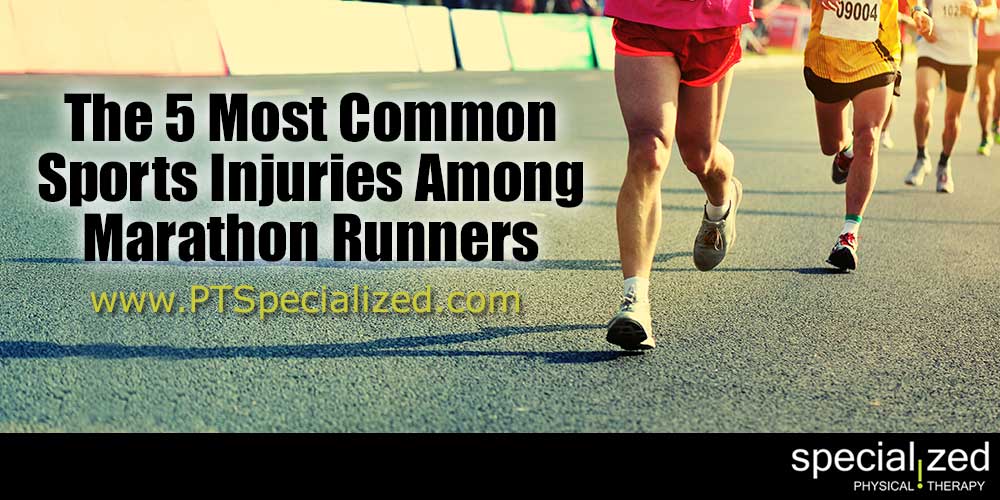Marathons are races that are 26.2 miles. Those who run them train for months for each race. They do this to prevent injury, but there are still common injuries that come from marathon running. Here are five of them.
1. Blisters. Blisters happen when your shoes rub different parts of your feet and cause irritation that become a blister. Chafing occurs where skin rubs against skin or clothing rubs against skin. Most chafing occurs on underarms, nipples, under the breasts, groin and thighs. You can help avoid each by wearing shoes that fit well, drying agents and pads on areas that tend to rub. Chafing can be helped by using cornstarch powder, roll-on silicone or petroleum jelly in areas that have a higher chance of rubbing.
2. Toenails. Black toenails happen when a blister happens under your toenail. It’s usually because your foot is sliding forward in your shoe each time you step. Wearing well fit shoes and augmenting your shoes with a heel cup or arch support that will help keep your foot still within your shoe.
3. Upset stomach. Stomach upset is very common during a race. Runner’s trots is an expression used to describe diarrhea. The best way to avoid either is by being very careful about what you eat for the 48 hours prior to the race. Limit caffeine and don’t overeat. If you know you have a problem with the trots, take some Imodium while training to see if it helps.
4. Dehydration. Obviously your body needs hydration during the race. However, too much, or not enough, are a problem. While running look for symptoms of dehydration, which include dry mouth, fatigue, dizziness, stomach ache, back pain, headache, irritability and decreased urination. Going to the opposite extreme is a problem as well. Hyponatremia happens when you drink too much fluid and your body doesn’t have time to eliminate it, diluting the salt balance in your cells. Symptoms include nausea, headache, cramps, confusion, slurred speech, bloating and swollen hands. If you have either set of symptoms, stop immediately and get help.
5. Cramps. Cramps are common and can be from dehydration or salt depletion, or because of the muscle strain from using the same gait and posture for an extended period of time. Stopping and gently massaging the muscle, rehydrating and changing your gait will help. Sprains, strains and stress fractures also happen and you’ll know it happens if you feel a sharp, sudden pain that isn’t a cramp. If any of these happen, stop and get help.
These are race problems but we know that long distance running can also cause problems with knees, backs and feet. If you have any sports injuries that need treatment, please contact us for a Free Pain Evaluation today!
